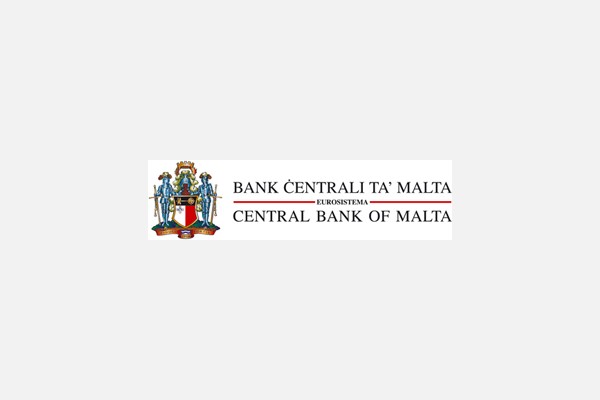Repository of Practices

Pre-paid cards to unbanked migrants
Dates
Type of practice
Geographic scope
Country:
Regions:
Sub Regions:
Local:
Summary
Malta still has a high usage of cash and cheques. One of the main responsibilities of the Central Bank of Malta (CBM) is to promote the stable and sustainable development of the payments landscape. In this regard, the CBM has been promoting the use of electronic means of payment instead of traditional means. However, certain sectors of society are still cash-based, especially vulnerable people. This includes migrants who might not fulfil all the requirements to open a basic payment account with a payment service provider.
The aim of this project is to issue a prepaid card to unbanked migrants so that the periodic government benefit/grant is uploaded onto the card, rather than being paid by cheque. The card can be then used to either withdraw physical cash from ATMs or to purchase products online. The first cash withdrawal following the monthly upload is provided free of charge, so that the migrants will not be worse off when compared to the encashment of a cheque, which is provided free of charge by the CBM. This initiative is still in the process of being implemented across all the migrants, as a pilot project on a number of migrants was concluded towards the end of 2021. Since the project did not require the implementation of any additional infrastructure expenditure, the costs incurred relate to the purchase of the cards and the running of the service, a percentage of which are being recovered from the Agency for Welfare of Asylum Seekers (AWAS).
CBM has agreements with AWAS and the service provider of the prepaid cards on data protection matters to ensure that technical and organisational measures are in place to safeguard any personal data against unauthorised disclosure or access.
Organizations
Main Implementing Organization(s)
Partner/Donor Organizations
Benefit and Impact
It is expected that the impact will be measured further on during 2022, when more migrants will be onboarded to this initiative. However, it is anticipated that the impact will comprise less use of the traditional paper-based instruments, more use of the efficient and secure electronic means of payments and access for the unbanked migrants to these electronic facilities. Furthermore, other indirect impacts could result in the form of a more efficient reconciliation for AWAS, reduced costs in relation to the cheque clearing process, and contribution to a greener environment since less paper is used.
Another benefit of the pre-paid card is that the agency can control the use of the benefit being issued, such as, prohibiting the use of the card for illicit purposes. As already anticipated, the project is still in its initial days of implementation and thus it is expected that during 2022 more migrants are enrolled so that the mentioned benefits can be extended to a larger number of migrants. Furthermore, the CBM is planning to extend the initiative to another category of unbanked migrants who receive social security benefits through paper-based instruments.
Key Lessons
Another challenge is the slow transition of migrants to switch to the new initiative. The process within the agency is quite laborious. Since the migrants fall under the responsibility of different sections within the agency, the initiative is being tackled in a piecemeal manner and thus takes longer to conclude. The CBM is in the process of discussing this issue with the AWAS officers to expedite the enrollment process.
Perhaps a big bang approach for the implementation of the initiative would have been more expedient. Additionally, such payment instrument should have been perhaps mandatory for all migrants, providing guidance on the modalities of its usage, especially to those who may have initial difficulties in using it.
Going forward, when the project is extended to include other government benefits, the lessons learnt will be applied from the first stage of the project where possible.
Recommendations(if the practice is to be replicated)
Adequate terms and conditions, both with the agency issuing the grant, and also with the individual card holders, should be in place to facilitate the safe and secure use of the product.
In order to ease the enrollment process and further enhance acceptance, the project owner should sell the product in such a way to convince the issuers of the grant that the product is the best option on the market which can meet their business requirements in the most efficient, effective and economic manner.
Any risks to which the implementing organisation might be exposed to due to the initiative, should be addressed in binding documentation with the relevant third parties.
Innovation
Date submitted:
Disclaimer: The content of this practice reflects the views of the implementers and does not necessarily reflect the views of the United Nations, the United Nations Network on Migration, and its members.
More Related Practices:
- Cultural advisories in the services of maternity´s health for the indigenous cross-border community Ngäbe Bugle (WHP)
- A designated migration module for processing comprehensive migration data in the existing Information Monitoring and Evaluation system of TB patients in the Republic of Moldova (SIME TB)
- Pacaraima Committee
- APP Multilenguaje Médico (AMM)
- Talleres de facilitación de diálogos de saberes: Introducción a la metodología de los diálogos interculturales
Peer Reviewer Feedback:
*References to Kosovo shall be understood to be in the context of United Nations Security Council resolution 1244 (1999).
Newsletter
Subscribe to our newsletter.